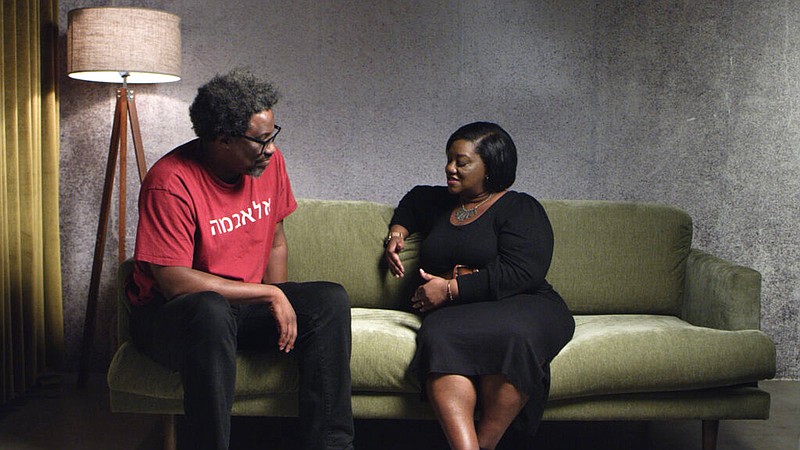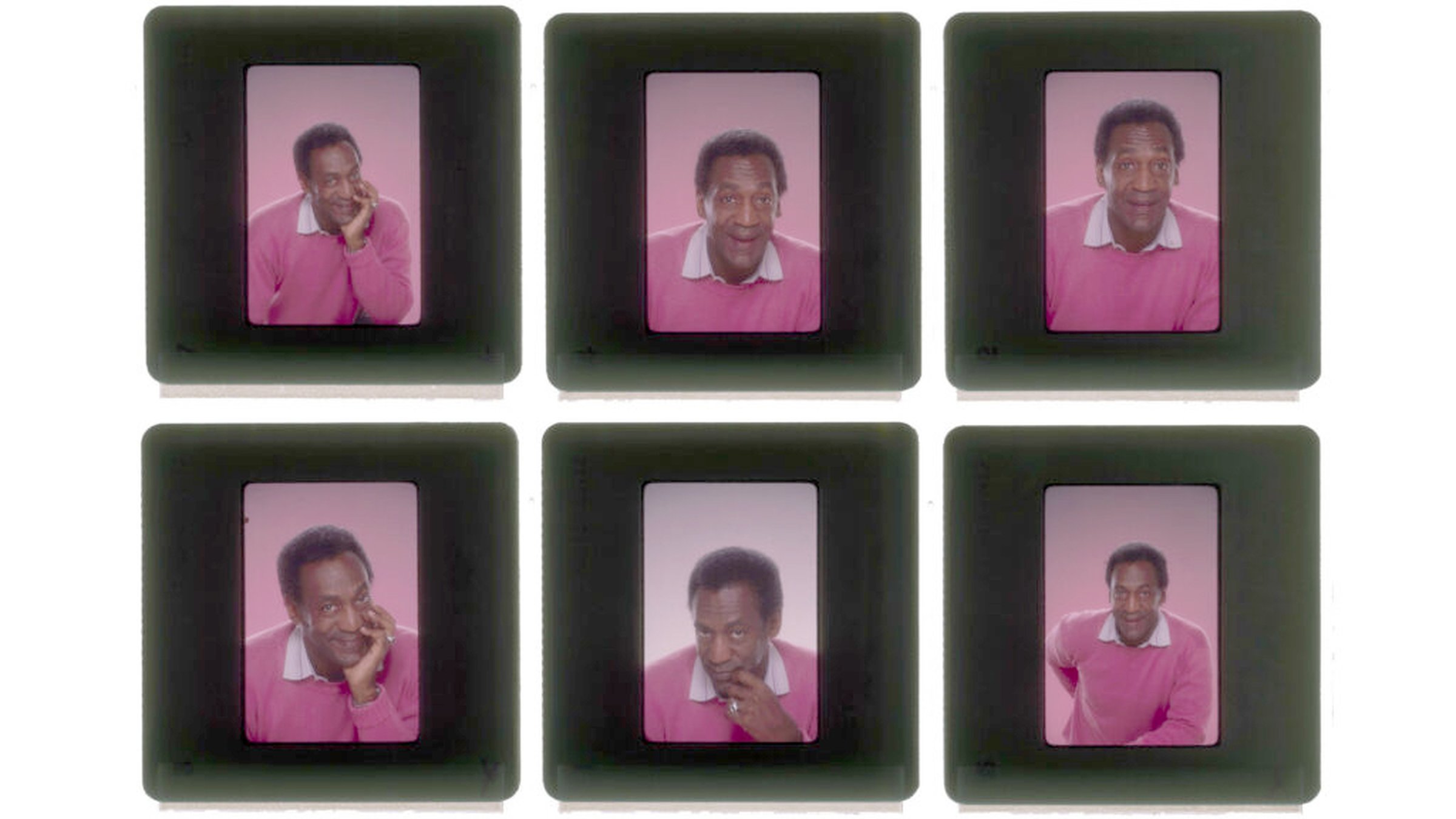Throughout his career, San Francisco Bay-Area-based comedian W. Kamau Bell has always taken on uncomfortable subjects.
The pilot episode for his CNN series "United Shades of America" led the Black comic to Arkansas where he met with members of the Ku Klux Klan.
If Bell had longed for a less thorny topic for his new four-part Showtime documentary, he clearly hasn't found it with "We Need to Talk About Cosby." It begins streaming Sunday.
Bell's own career is inconceivable without Bill Cosby's rise to fame in the early 1960s. The pioneering comic made audiences of all races laugh without presenting Black people as buffoons or simpletons. Not long before Cosby, actors like Lincoln Theodore Monroe Andrew Perry, aka Stepin Fetchit, made most of their living from cringe-y roles that are all but unwatchable today.
Before Cosby, Hollywood didn't hire Black stunt performers. Before Cosby's debut series "I Spy," white stuntmen in black makeup doubled for Black stars.
"You know, I'm 48. So, I feel like I was born at the exact time to be at the heart of Bill Cosby's career, like 'Fat Albert and the Cosby Kids,'" Bell says over Zoom. "He was a part of the wallpaper of being Black in America when I was a kid. So, for me, it's like now that you've memorized those routines, you can't, unmemorize them. If you put that record on, you're going to start to recite those things. You're going to start to smile.
'TALK ABOUT THE REST OF IT'
"You can't really talk about the Black experience in America without talking about Bill Cosby. You can't talk about showbiz in the 20th century without talking about Bill Cosby. You can't talk about great acts of philanthropy without talking about Bill Cosby. There's so many ways in which Bill Cosby is a part of these discussions, and that the film is trying to say if you're going to talk about those things, you've got to talk about the rest of it," the comedian and filmmaker said.
And you can't talk about Cosby without also bringing up his rape conviction.
Bell is also the father of three girls, so his account of the allegations against his fellow comic is unsparing and detailed. Bell says this attitude is reflected in how he talks to his children.
"As a parent, that's one of the defining features of my life and one of the great joys of my life and one of the great exhaustions," he says. "It's always been clear to me and my wife that we can't treat our kids like they can't handle bigger truths. You have to handle them in age-appropriate ways. I have a 10-year-old, a 7-year-old and a 3-year-old. She's not ready for all the big truths, but the 10-year-old and the 7-year-old know what Black Lives Matter is.
"They know Martin Luther King, Jr. was assassinated; they know that George Floyd was killed by police. They know about slavery. My wife -- and I want to give credit to her -- has these big conversations with them all the time. We also talk about 'Encanto,' and we sing 'We Don't Talk About Bruno,' so it's all happening at the same time."
HARDLY THE ONLY STAR
Cosby is hardly the only star or figure in the arts whose work is tainted by his off-duty behavior. During our discussion, we brought up Roman Polanski, Harvey Weinstein and others.
"You have this list that could go on and on," Bell says. "It's powerful men enjoying the spoils. It may not be illegal, but it's not the way we should conduct ourselves in regular society.
"That's what our film is about. It's about Bill Cosby, but it's also about America, and it's about showbiz. In the first episode, we talk about the culture of Hollywood, and 'boys will be boys.' A lot of what Bill Cosby was doing was framed as and thought to be infidelity, and 'if you think infidelity is wrong, you shouldn't go into show business.'
"There's a culture of powerful men getting access and privileges to things that regular people would never be able to do. Today, no matter how good you are at your job, you could never have a parade of women coming to your door without somebody saying, 'What's going on here?' But in showbiz, it's not so unusual to where it's considered weird. There's a hierarchy in show business, and you're low on the hierarchy of power, then you just put your head down and do your job. You're going to not see stuff that's right before you because you've been taught to just do your job."
UNCOMFORTABLE SUBJECTS
As viewers of "United Shades of America," which is currently on HBO Max, can attest, Bell can coax others to bring up uncomfortable subjects. In "We Need to Talk About Cosby," several of Cosby's accusers provide detailed, chilling accounts of his behavior.
Asked how he has been able to get others to open up about painful memories, Bell says, "I think of myself as a Black man above anything else because that's how I survive. If racism didn't exist, my identity was as an only child ... . As an only child raised by a single mom, my mom would just take me to places because she didn't have access to babysitters. So, I ended up with a lot of conversations around adults, listening and paying attention and hearing things most kids my age weren't listening to.
"I credit moving to the Bay Area in my 20s for comedy. I met people who lived lives very different from mine. Being around people and (discovering) that you learn more by listening than by interrupting and that you don't always have to talk. You can have better conversations by shutting up instead of talking."
Not that Bell has any difficulty speaking. His Netflix special "Private School Negro" and his podcasts easily demonstrate he's at home behind a microphone.
He also hopes that his look at the once beloved comic might start tricky but essential conversations about other problems.
'CONFLICTING TRUTHS'
"We are always holding multiple, conflicting truths in our heads at a time, but we're not good at discussing them at one time," he says. "You can read an article about something awful and then do something that is directly contributing to that awfulness, but you say to yourself, 'That's different. I'm me.'
"We have to prioritize creating a world that doesn't let awfulness happen as often. That's what we try to do in the fourth episode to look at ways to create a safer environment for women, but that means a safer environment for everybody."
Bell encountered an effort like that in Harrison as he was filming the pilot episode of "United Shades of America." He met with white supremacists there and also discovered how the residents of the town were actively fighting against hate groups.
"I will forever have a soft spot for Harrison, Arkansas," his voice warmed up as he recalled, "That was the pilot episode of the show. It's like looking at baby pictures. There are so many things I would do differently now. It was super important to us, while Harrison came up on a Google search for KKK, when in actuality, it's a small group of people at a house outside of Harrison who were sort of turning it into Klantown. It's clearly a town that is not that. I hope to get back to Arkansas. I performed there a few times and really enjoyed it."

